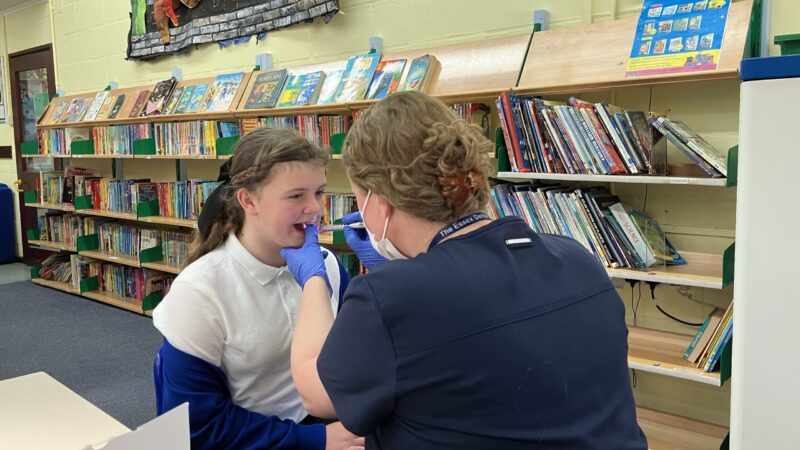
Children in the most vulnerable areas of mid and south Essex have a better chance of having healthy teeth a new report shows, thanks to local efforts that support fairer access to healthcare services.
The latest Health Inequalities Annual Report 2024/25 from NHS Mid & South Essex highlights positive changes made over the past year by the local NHS and other partner organisations to make healthcare fairer and more accessible to disadvantaged and vulnerable groups. The report shows a reduction in the proportion of young children from more at-risk areas needing teeth removed. This is helping them grow up healthier and happier.
Often children living in the most vulnerable areas have more problems with tooth decay, which also affects their overall health and wellbeing. The Health Inequalities report highlights local initiatives that are teaching children and families how to care for their teeth, which are part of the Mid and South Essex Bright Smiles Child Oral Health Improvement Programme.
The oral health improvement programme team has seen more than 6,300 people, given out more than 18,000 toothbrushing packs and trained about 400 workers, volunteers and adult students. Primary school children across mid and south Essex have also been getting help to keep their teeth healthy through a new school’s programme. Local dentists have been visiting schools to give dental checks, teach good oral health habits and help children and their families receive NHS dental care.
The report also shows more people with a learning disability or serious mental health problem are getting their yearly health checks. The number of patients receiving their health checks has gone up to 77.8 per cent and 67.9 per cent respectively, exceeding the national goals of 75 per cent and 60 per cent. Improving communication and local community links has been key. Patient leaflets and posters have been made with people who use the service to ensure their thoughts and experiences are included.
Our new report shows we’re making good progress to make health care fairer for everyone in mid and south Essex. We’ve been working with partners, communities and our staff to address differences in how people access health services and provide targeted support in areas where it’s needed most. We want to make sure everyone can get the care they need, when they need it.
Dr Sophia Morris, a dentist and system clinical lead for health inequalities at NHS Mid and South Essex
Due to factors which create unfair differences such as where people live, their job or income, people and certain communities can experience more health problems and find it harder to stay healthy.
Dr Morris added: “These improvements have really helped our residents and communities but there is still more we can do. We want to offer more support to people under 40 years old to better manage conditions such as diabetes and encourage more adults to have cancer checks to help protect their health.”
Find out more about the Health Inequalities Annual Report 2024/25 and our work to reduce the gap in health inequalities at the NHS Mid and South Essex website.